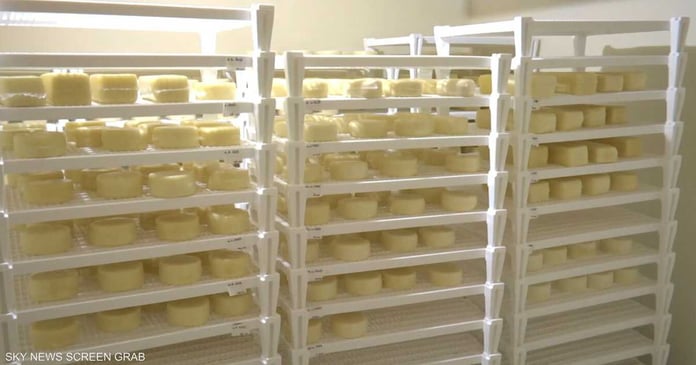Lebanese local alternative industries include a range of products such as medicines and simple medical supplies and preparations.
The owners of factories in Lebanon have found there an opportunity to seduce the Lebanese consumer who cannot buy imported products, while some Lebanese industrialists have found in foreign markets an outlet to sell locally manufactured products.
The food industry ranks first among Lebanese local industries, benefiting from the specificity of Lebanese cuisine.
However, Lebanese industrialists complain of state negligence in marketing their products and ignoring the importance of legislation protecting the industrial sector.
Lebanese factory owners complain about the lack of government support for them and the lack of any protection against competition from unlicensed factories.
And if the Lebanese pound banknotes have multiplied in an unprecedented way after losing their monetary value in the market, then some of the drug pills that are marketed and some of them are prescribed to reduce the headaches that afflict the soul of some Lebanese, multiply at lightning speed to meet the needs of the local market and perhaps invade the markets of neighboring countries.
Dozens of drugs are manufactured here and others are developed in research centers that have seen remarkable modernization since the Corona crisis and the lack of access to drugs and medical supplies due to global shutdowns.
Lebanese factories seized the opportunity and developed their small equipment and purchased large equipment in order to be able to manufacture sufficient quantities for the local market and exceed it for the markets of other countries.
Opportunities from the belly of the crisis
Carol Abi Karam, General Manager of the Pharmaline Pharmaline Factory, says: “Since the creation of the Pharmaline Factory, the plan was to manufacture drugs that complied with international health standards. After the crisis, we developed the department of studies and have successfully developed 35 new medical products available in local and overseas markets, and sales of our products have increased.” From 2029 to today, they have increased by approximately 63%. We seek to manufacture a quality medicine in a sustainable way, at prices that take into account the purchasing power of the Lebanese.
Liquidity has shrunk from the dollar and foreign currencies in the markets, so factory owners have resorted to liquefying plastic material and designing packaging filled with cosmetics and healthcare products.
This transformation saved the shelves of supermarket centers from the void left by consumer products lost from the market after it was not possible to pay their import costs.
From the neck of the economic crisis, an exceptional opportunity has emerged, which has been seized by the industrialists of Lebanon, who have not been able to conquer the Lebanese consumer over the years.
The Lebanese did not place their trust in local products, which were available before the years of crisis.
However, they chose it reluctantly, after the prices of imported goods became beyond the capacities of their wallets, which were saturated with a local currency, the value of which was no longer worth anything.
Those who have been able to address the local consumer and meet their aspirations in the products they price have succeeded. This has helped the factory to develop dozens of varieties of cosmetics and health products that cover the whole body. This covered the needs of the local market and exceeded them for many markets in the region.
Come back inside
“We have benefited from the crisis as it has generated a class of people seeking to support local industry, in addition to a section of consumers who have forcibly chosen locally made products before finding that they meet their demands. and competed with the prices of imported products,” says Joan Sarraf, Chairman of the Board of Malia Trading Group. .
In the decades preceding the collapse, the progress of the service sector in Lebanon clearly appeared to the detriment of the decline of the industrial sector, which would have been wiped out had it not been for the bitter attempts of a few industrialists who found abroad markets an outlet to market products made in Lebanon.
For his part, Paul Abi Nasr, a member of the Association of Industrialists, believes that the policy of stabilizing the national currency during the pre-crisis years led to an increase in its purchasing power, making imports less expensive than manufacturing. “On that day, and after the exchange rate was liberalized, the industrial sector was liberalized with it and was able to fill the gap in consumer markets.”
The industrial boom that has taken place in Lebanon has come at a time when banks are refusing to return deposits that could be the first building block for more factories, and they are also refusing to provide loans to facilitate the first stages. establishing factories or increasing their capacities.
Read the Latest World News Today on The Eastern Herald.

